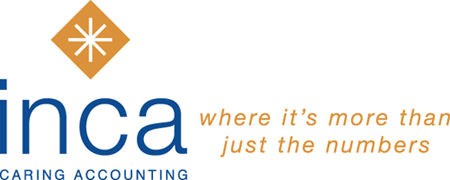New changes mean it’s time to get your houses in order
In last July’s budget, Chancellor George Osborne announced the government’s intention to introduce a number of changes affecting the property market – and buy to let landlords in particular. Although final implementation dates for some of these changes are still to be confirmed, and others will be rolled in gradually, with the new tax year just around the corner, we thought now would be a good time to remind ourselves of the headlines.

Changes to the ‘wear and tear’ allowance
Under the current system, landlords of furnished properties have a choice in how they handle the wearing out of furnishings, with most opting to take advantage of a standard allowance which reduces their rental profit by typically 10% of the gross rental income – irrespective of whether or not they actually replace any furnishings.
From April 2016, the ‘wear and tear’ allowance will be replaced by a new system which will only allow landlords to claim tax relief when they replace furnishings. Under the new rules, landlords will only be allowed to claim relief based on like for like replacements, and if they choose to replace an item with something more expensive, they’ll have to wait until it reaches the end of its life before being able to claim relief on a substitute of equivalent value.
On the basis of this change, it would make sense for any landlords about to undertake repairs involving the replacement of furnishings, to consider whether they may be better off delaying works until after the new tax year has begun.
Changes to Stamp Duty on second or subsequent properties
From April 2016, anyone purchasing a second or subsequent property in the UK will be required to pay an extra 3% Stamp Duty over and above standard rates. This increase will have a significant financial impact on buy to let landlords purchasing properties worth £125,000 or more (the current threshold for residential properties subject to Stamp Duty) after the start of the new tax year.
Whenever a new policy is introduced disadvantaging those purchasing property after a certain date, it’s virtually inevitable there will be a rush to complete deals ahead of the deadline. It won’t just be buy to let landlords who feel the effects of this particular change: The run up to April could see a spike in house prices, and first time buyers might want to consider delaying house-hunting to avoid competing with investors, while tenants could get caught in the middle as landlords seek to offset this new cost by increasing rents.
Changes to rules on owning property through limited companies
Something we’ve seen an increase in lately at Inca, is people setting up limited companies through which they then acquire properties. Right now, there seems to be some debate about whether the 3% increase in Stamp Duty mentioned above will apply to properties that are purchased in this way. A consultation process is planned, but for now it’s unclear exactly which kinds of organisations may be exempt.
Depending on the eventual outcome of the consultation, landlords who are already running their rental business through a limited company and decide to purchase a further property, could possibly find themselves saving the 3%. Even if it is decided limited companies are to be exempt though, don’t be in a rush to transfer ownership of a property – this will be considered to be a sale, and treated as such, meaning it will attract Stamp Duty. If however, you have low valued property that will not be subject to Stamp Duty, transferring ownership might be worth considering. We’d certainly recommend taking legal advice if this change is likely to affect you.
Changes to Interest relief for landlords
Another change landlords need to prepare themselves for is the gradual restriction on the amount of interest relief they can claim. At the moment, landlords who are lower rate tax payers can claim 20% interest relief, and higher rate tax payers 40% and 45%. From April 2017 though, this is due to start gradually reducing, so that by April 2020, tax relief will be restricted to 20% for all individuals.
The change will mean higher earning landlords will find themselves paying more tax because their property will become more profitable, and for this reason, it could be worth couples and civil partners looking at the way they jointly own properties. The default position when a couple own a property together is a 50/50 split known as a ‘joint tenancy’ agreement, under which each partner owns exactly half of the property. An alternative option is to set ownership up as a ‘tenancy in common’ agreement, which allows a couple to allocate ownership percentages as they wish. Such an arrangement might be employed to help reduce the tax burden on a landlord. If changing the ownership of properties is advantageous to you, you will need to consult a conveyancing solicitor.
Changes to Capital Gains Tax liability
At present, if you dispose of a property and are liable to pay Capital Gains Tax (CGT), you won’t have to settle your bill with HMRC until 31st January following the end of the tax year in which the sale occurred. So, depending on when a sale was completed, the seller could benefit from ‘credit’ for as long as 22 months. This generous arrangement is set to become a thing of the past however. From April, a seller will have just 30 days to make payment to HMRC.
Taking account of this, if you have plans to dispose of a property on which CGT is liable, you will probably want to ensure the sale is completed before the end of the current tax year in order that you will have up to 10 months to pay, rather than just 30 days if you complete on or after 6th April!
Let Inca help you prepare for change!
As you can see then, there’s lots to be thinking about if you are a landlord or property investor, and some of these changes could have a serious impact on your financial situation if you don’t address them now. But don’t worry, you’re not on your own – Inca will be pleased to discuss your circumstances, advise you on how you will be affected, and help you make the right decisions in plenty of time.
Phone: 01235 868888 or Email: [email protected].




